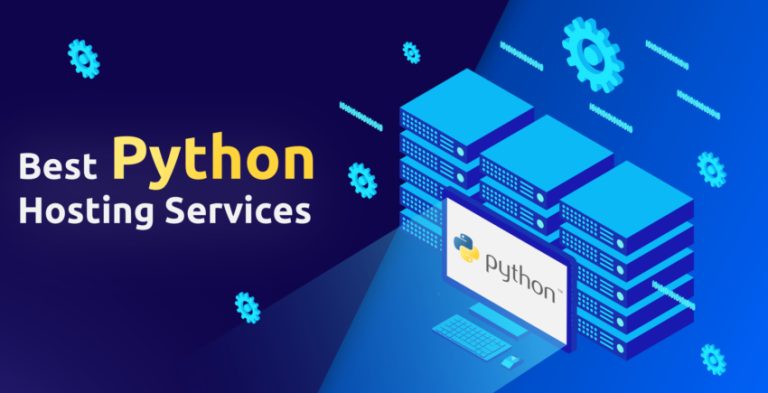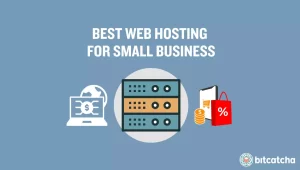Python hosting has emerged as a crucial aspect of web development, providing developers with the necessary infrastructure to deploy and manage Python-based applications effectively. As we step into 2024, the realm of Python hosting continues to evolve, with hosting providers offering a range of solutions tailored to the diverse needs of developers and businesses. In this article, click5s.com will explore the best Python hosting options available in 2024 and the key considerations to keep in mind when choosing a hosting provider.
What is Python Hosting?
Python hosting refers to web hosting services specifically optimized for hosting Python-based applications and websites. With Python hosting, developers can leverage the capabilities of the Python programming language to build dynamic web applications, APIs, and data-driven websites. Python hosting providers offer server environments configured to support Python frameworks such as Django, Flask, and Pyramid, along with essential tools and resources for Python development.
Key Factors to Consider in Python Hosting
When evaluating Python hosting providers, several key factors should be taken into account to ensure a seamless hosting experience:
Reliability and Uptime Assurance: Choose a hosting provider that offers a robust infrastructure with a guaranteed uptime to ensure your Python applications remain accessible and responsive at all times.
Performance and Speed Optimization: Opt for a hosting provider that prioritizes performance optimization through technologies like SSD storage, caching mechanisms, and content delivery networks (CDNs) to deliver fast loading times for your Python applications.
Compatibility with Python Frameworks and Applications: Ensure that the hosting environment supports the Python frameworks and libraries required for your applications, whether you’re using Django, Flask, or other Python-based tools.
Top Python Hosting Providers
Bluehost
- Price: $2.95 per monthSolid uptime
- Includes several security features
- Free SSL: Yes
- 24-7 Support: Yes
- Free Domain: Yes
Kamatera
- Price: $4 per month
- Lots of hosting options
- Simple upgrades
- Free anti-spam solution
- Free SSL: No
- 24-7 Support: Yes
- Free Domain: Yes
Hostinger
- Price: $2.99 per month
- 24/7 support
- SSL certificate
- Database backups
- Free SSL: Yes
- Free Domain: Yes
DreamHost
- Price: $2.59 per month
- Unmetered 97-day money-back guarantee
- Unlimited bandwidth and storage
- Friendly customer service
- Free SSL: Yes
- 24-7 Support: Yes
- Free Domain: Yes
A2 Hosting
- Price: $2.99 per month
- 24/7 support
- SSL certificate
- Database backups
- Free SSL: Yes
- Free Domain: No
FAQs
1. What is Python Hosting, and why is it important?
Python Hosting refers to web hosting services specifically optimized for hosting Python-based applications and websites. Python, being a versatile and powerful programming language, is widely used for developing various applications, including web applications, data analysis tools, and machine learning models. Python Hosting providers offer server environments configured to support Python frameworks and libraries, providing developers with the necessary infrastructure to deploy and manage Python applications effectively. It is important because it enables developers to harness the capabilities of Python and build dynamic, scalable, and feature-rich web applications.
2. Is Python Hosting suitable for beginners?
Yes, Python Hosting is suitable for beginners due to its ease of use, flexibility, and extensive community support. Many Python Hosting providers offer user-friendly control panels and intuitive tools that simplify the process of deploying and managing Python applications, making it accessible to developers of all skill levels. Additionally, comprehensive documentation, tutorials, and online resources are available to assist beginners in getting started with Python Hosting and overcoming any challenges they may encounter along the way.
3. How do I migrate my existing Python project to a new hosting provider?
Migrating your existing Python project to a new hosting provider is a relatively straightforward process. Here’s a general outline of the steps involved:
- Backup Your Data: Before initiating the migration process, ensure that you have backed up all your project files, databases, and configurations from your current hosting provider.
- Choose a New Hosting Provider: Research and select a new hosting provider that meets your specific requirements in terms of performance, features, and pricing.
- Set Up Your Environment: Set up the environment on your new hosting provider’s server, ensuring that it supports the necessary Python versions, frameworks, and dependencies required by your project.
- Transfer Your Files: Copy your project files, including Python scripts, static files, and configuration files, from your old hosting provider to the new one using FTP, SFTP, or SSH.
- Migrate Your Database: Export your database from the old hosting provider and import it into the new one, ensuring that all data is transferred accurately.
- Test Your Application: Once the migration is complete, thoroughly test your application on the new hosting provider to ensure that it functions correctly and there are no compatibility issues.
- Update DNS Records: Update the DNS records for your domain to point to the IP address of your new hosting provider’s server to ensure that traffic is directed to the correct location.
- Monitor Performance: Monitor the performance and stability of your application on the new hosting provider’s server, making any necessary adjustments or optimizations as needed.
4. What security measures should I implement for my Python applications?
Ensuring the security of your Python applications is essential to protect your data, users, and infrastructure from potential threats and vulnerabilities. Here are some security measures you should consider implementing:
- Use HTTPS: Secure communication between your application and users’ browsers by using HTTPS encryption, which encrypts data transmitted over the network and helps prevent eavesdropping and tampering.
- Input Validation: Validate and sanitize all user input to prevent common security vulnerabilities such as SQL injection, cross-site scripting (XSS), and cross-site request forgery (CSRF).
- Authentication and Authorization: Implement robust authentication and authorization mechanisms to control access to sensitive resources and functionalities within your application.
- Secure Password Storage: Store user passwords securely using strong cryptographic hashing algorithms and salted hashes to prevent unauthorized access in the event of a data breach.
- Regular Updates and Patching: Keep your Python interpreter, frameworks, libraries, and dependencies up to date with the latest security patches and updates to address known vulnerabilities and mitigate potential risks.
- Firewall Protection: Configure firewall rules to restrict incoming and outgoing traffic to your application server, allowing only necessary connections and blocking unauthorized access attempts.
- Logging and Monitoring: Implement logging and monitoring mechanisms to track and analyze application activity, detect security incidents, and respond promptly to any suspicious behavior or anomalies.
5. How does customer support differ among various Python hosting providers?
Customer support quality can vary among different Python hosting providers, depending on factors such as response time, expertise, and availability of support channels. Some hosting providers offer 24/7 support via live chat, phone, and email, ensuring prompt assistance whenever you need it. Additionally, reputable hosting providers often provide extensive knowledge bases, forums, and community support to help users troubleshoot common issues independently. When choosing a Python hosting provider, consider researching user reviews and ratings to gauge the quality of their customer support services. Additionally, testing the responsiveness and effectiveness of their support team through pre-sales inquiries or technical support requests can help you assess their level of customer service.






